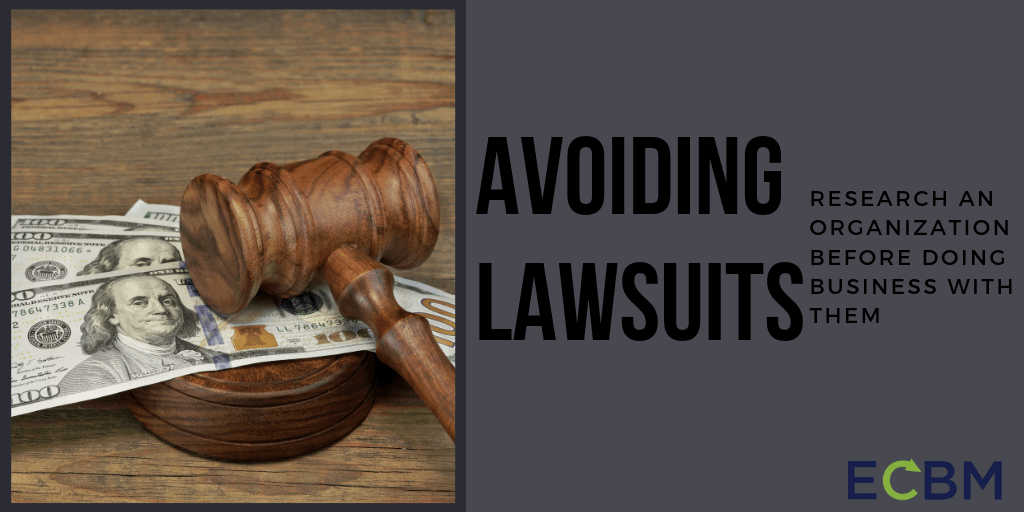 No one wants to be sued, businesses especially. They particularly do not want to be sued by their customers or vendors. Many companies invest significant resources into policies and procedures designed specifically to avoid lawsuits. Unfortunately, some organizations choose to view lawsuits as the primary means of resolving disputes with others.
No one wants to be sued, businesses especially. They particularly do not want to be sued by their customers or vendors. Many companies invest significant resources into policies and procedures designed specifically to avoid lawsuits. Unfortunately, some organizations choose to view lawsuits as the primary means of resolving disputes with others.
Research Potential Business Partners Before Hand
It’s always worthwhile to do some research on any organization before doing business with them. Simple Google searches can reveal lengthy litigation histories. If a company has sued most or many of their previous vendors, it's probably a good bet they will sue you too. Other tools such as industry connections or legal searches like LexusNexis can also help you get a feel for how likely a company may be to sue you before you start doing work for them.
Sometimes It's Better to Say No
Sometimes, it's better to decline business than it is doing work and signing contracts with an entity you know to be overly litigious. Lawsuits don’t only cost money; they can damage your loss history with your insurance carrier, damage your reputation with other customers, and take up large portions of your time that would be better spent growing your company. However, it doesn’t always make sense to turn down business simply because of a customer’s reputation for being too quick to sue.
Attention to Detail is Key
In these circumstances, you need to pay aggressive attention to contract details. Routine contract terms like venue and jurisdiction become significantly more important in these circumstances. Hold harmless and indemnity clauses definitely become more important, as do having solid and crystal clear terms for performance and delivery.
Alternative Dispute Resolution
Terms regarding alternative dispute resolution, though, can also provide significant protection when dealing with litigious entities. Many contracts require that parties undertake certain steps prior to filing lawsuits. These terms may include options like mediation that offer a way to work out disputes in a mutually agreeable way prior to paying lawyers hundreds of thousands of dollars. Attempts to de-escalate a situation prior to the filing of a suit can also help clarify the issues, narrow the scope of disagreement, and provide time to prepare yourself and your business for litigation. It will also help avoid you being blindsided.
Protecting your Company's Reputation
These methods also have the advantage of allowing for confidentiality. Confidentiality isn’t always beneficial with business disputes, but it often is. It can help protect your company’s reputation. It also can help your company avoid developing its reputation for litigation. Even when not facing litigious opponents, taking time to think through a process for resolving disputes without lawsuits while a contract is being negotiated can help maintain good relationships for you and potential partners.
